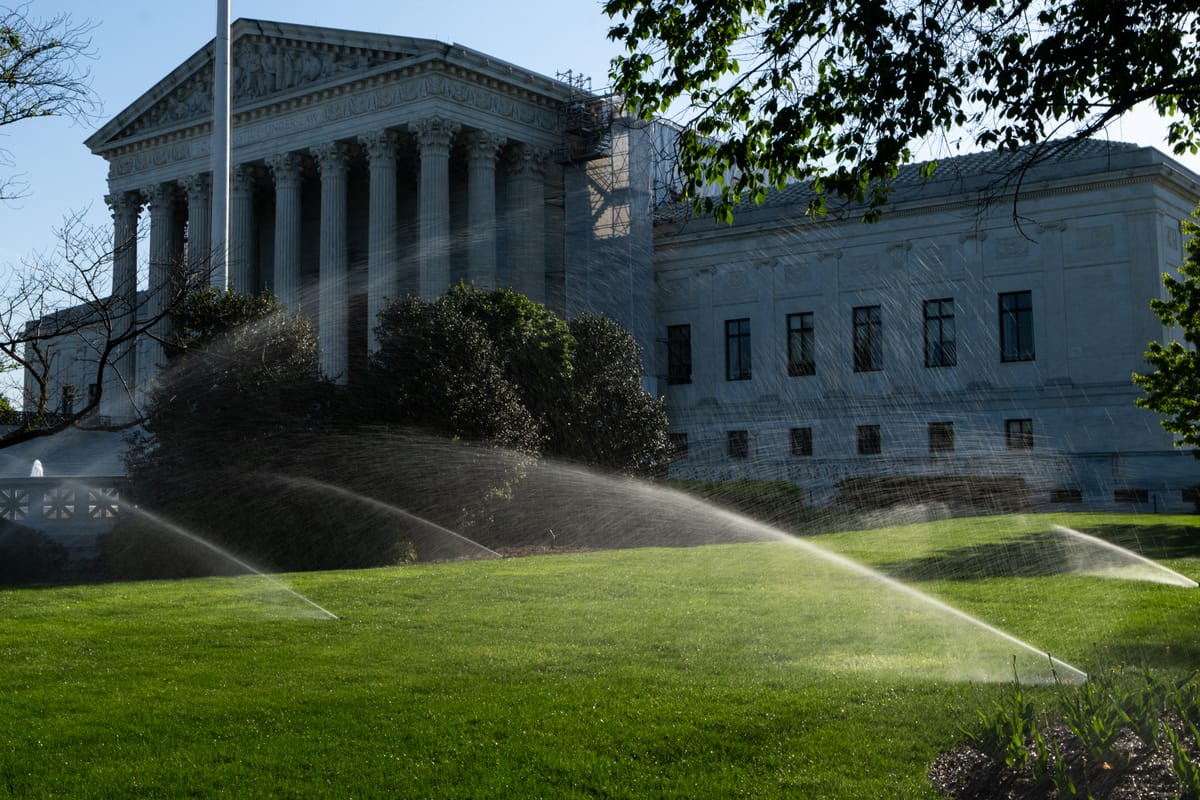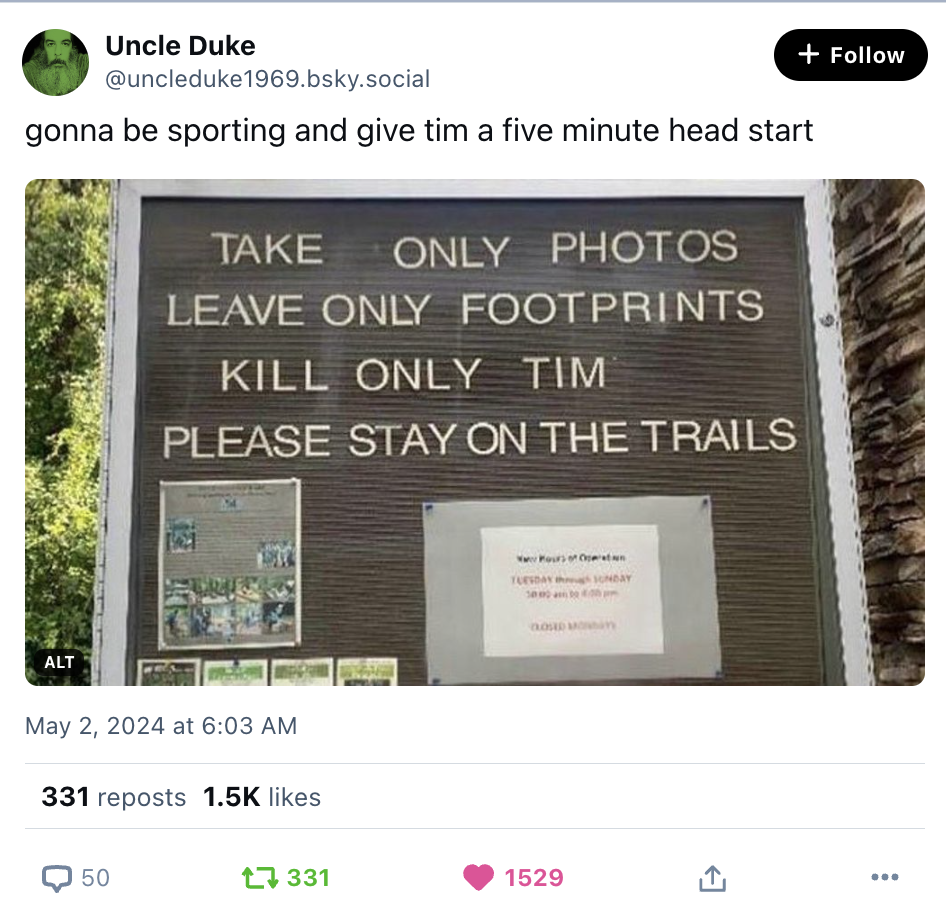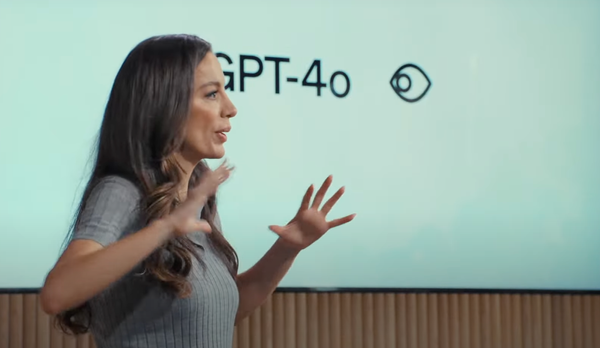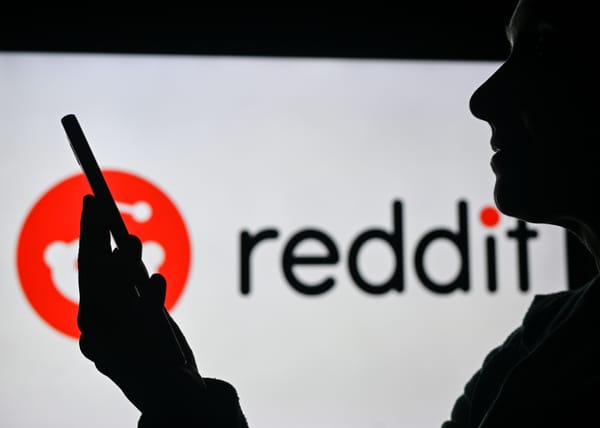How Texas’ online porn law could shatter a First Amendment precedent
After the Supreme Court declined to issue a stay this week, 20 years of court rulings may be about to go out the window

Today let’s talk about a somewhat surprising decision at the Supreme Court that suggests a long-settled assumption about the First Amendment may be on the verge of getting upended.
Last year, Texas passed a law that attempts to make it more difficult — and less desirable — to look at porn online. H.B. 1181 requires platforms that offer sexually explicit content to verify that users are 18 or older, either by verifying users’ ages directly with government-issued IDs or paying a commercial vendor to do it for them. It also attempted to force porn sites to display a “health warning,” which stated without evidence that “Pornography increases the demand for prostitution, child exploitation, and child pornography.”
Amid growing concerns about child safety online, seven states have now joined Texas in passing similar age verification laws: Arkansas, Indiana, Mississippi, Montana, North Carolina, Utah, and Virginia. (Florida is likely to join them soon.) Last year the Free Speech Coalition, a trade group that represents adult performers, sued Texas in an effort to overturn the law.
Until recently, there would have been good reason to assume that the trade group would succeed. Two decades ago, the Supreme Court overturned a previous effort to implement a very similar law. In Ashcroft v. ACLU, the court examined the Child Online Protection Act, which also sought to prevent minors from looking at porn. Like H.B. 1181, COPA required providers to verify users’ ages in the name of child safety.
In its ruling, the court found that there were less restrictive ways to limit children’s access to inappropriate material, such as by using filtering software. Moreover, forcing adults to verify their ages to access a website places an undue burden on their right to access constitutionally protected speech.
COPA was thrown out, and the precedent held for 20 years.
But now there is a conservative supermajority on the Supreme Court. And the U.S. Court of Appeals for the Fifth Circuit, which is notorious for issuing rulings too conservative even for the current Supreme Court, is barraging the court with a series of boundary-pushing First Amendment cases.
In recent years, the Fifth Circuit upheld a law that seeks to make most content moderation illegal, and attempted to prevent the government from communicating with platforms about misinformation and public health issues. And last month, it upheld the age verification portion of Texas’ law. (It did throw out the mandatory “health warning,” which it found to be unconstitutional compelled speech.)
The Free Speech Coalition appealed the case to the Supreme Court, and asked for the law’s implementation while the appeal was considered. Given the strong precedent, it seemed likely that the court would intervene.
But that’s not what happened. On Tuesday, the Supreme Court let the law go into effect.
Here’s John Fritze at CNN:
The Supreme Court on Tuesday allowed Texas to enforce age-verification requirements for porn sites, rejecting a request from the adult entertainment industry to block the law on First Amendment grounds.
The Supreme Court offered no explanation for its decision Tuesday, common for decisions on its emergency docket. There were no noted dissents.
On one hand, it’s impossible to draw definitive conclusions from the court’s decision not to intervene. It could still choose to hear the Free Speech Coalition’s case, overturn the law, and uphold precedent.
At the same time, the case raised eyebrows among some First Amendment scholars.
“It’s a fuzzy signal, because they don’t give reasons,” said Evelyn Douek, an assistant professor at Stanford Law School, about the court’s silent action. “It doesn’t say anything about the merits of the case. … At the same time, it is still not a great sign, given how good the precedent is.”
There is a broad consensus that it is too easy for minors to access adult material online — just as there is a broad consensus that it’s too easy for children to create accounts on TikTok, YouTube, and Instagram. It has always been easy for minors to lie about their age and access inappropriate content online. It still is.
At the same time, minors have also become an effective smokescreen for the fact that many conservative lawmakers don’t want adults to access porn, either. And asking would-be porn consumers to fork over their government IDs turns out to be an extremely effective way of driving them away.
That’s why big platforms like Pornhub are exiting states entirely rather than implementing these schemes.
Even then, these laws likely have only a negligible effect on porn consumption. The reason is the glut of smaller, less scrupulous sites that fly under the radar of state legislatures — and often fail to remove scenes posted without participants’ consent, or those that involve minors. The overall effect is to punish the platforms (and creators) that actually do content moderation and observe state laws while redistributing porn traffic to the platforms that don’t.
In the past, we might have relied on the Supreme Court to recognize the free speech issues at play — and to affirm its previous position that the speech rights of adults outweigh the potential harms to minors. But it’s not clear that we can do so any longer.
And if the Fifth Circuit succeeds in pushing those boundaries, expect to see more states asking you for an ID as you browse the internet.
“We are in this moment of both legislatures and lower court judges pushing boundaries in a way we haven’t really seen in a long time,” Douek said.

On the podcast this week: Listeners call in to tell us the wildest ways they're using AI at work. Then, YouTuber Hank Green stops by to tell us how he's thinking about the prospect of a TikTok ban. And finally, a crazy story about synthetic audio at a Maryland high school that illustrates how deepfakes have arrived on Main Street.
Apple | Spotify | Stitcher | Amazon | Google | YouTube
Governing
- From the DOJ’s antitrust case against Google:
- Microsoft’s big investment in OpenAI was driven by a need to catch up to Google, according to an internal email released. (Leah Nylen and Shirin Ghaffary / Bloomberg)
- Alphabet paid Apple $20 billion in 2022 for Google to be Safari’s default search engine. The number was a closely guarded secret. (Leah Nylen / Bloomberg)
- A look at the judge deciding the case, Amit P. Mehta, and his history in another antitrust case involving Sysco and the FTC. (Steve Lohr / New York Times)
- Judge Mehta also tried to poke holes on both sides in closing arguments, pushing both parties to defend their cases more. (David McCabe and Cecilia Kang / New York Times)
- TikTok and Universal Music Group reached a deal to bring the label’s music back on the platform. (Jem Aswad / Variety)
- Most Americans believe that TikTok is used by China to shape US public opinion, a new poll finds. There’s currently no evidence to confirm that’s the case. (Jason Lange and David Shepardson / Reuters)
- A bipartisan bill that would modernize and strengthen the tipline for missing and exploited children is headed to Biden’s desk. Among the provisions are steeper fines for online service providers if they don’t report suspected violations. (Amanda Silberling / TechCrunch)
- Internal communications at Meta, Google and Amazon reportedly show tech execs’ tensions with the Biden administration over COVID-19 misinformation policies. (Lauren Feiner / The Verge)
- Extreme militia groups and profiles have reportedly been quietly organizing and recruiting in more than 100 Facebook groups. (Tess Owens / WIRED)
- More than 50 former Google employees who were fired in connection to protests over an Israeli defense contract filed an NLRB complaint alleging unlawful retaliation. (Gaby Del Valle / The Verge)
- An NLRB judge ruled that Amazon CEO Andy Jassy broke federal labor law with anti-union comments he made to media outlets. (Annie Palmer / CNBC)
- Google urged the US government to update its immigration policies or risk losing out on AI and tech talent in a letter to the Department of Labor. (Emilia David / The Verge)
- A new lawsuit against Meta is arguing that US law requires the company to let users control their feeds and use unofficial add-ons, which could help researchers study the platform. (Vittoria Elliott / WIRED)
- Microsoft banned US police departments from using Azure OpenAI Service for facial recognition. (Kyle Wiggers / TechCrunch)
- The Commodity Futures Trading Commisision named its first chief AI officer. (Mengqi Sun / Wall Street Journal)
- During a Senate hearing about AI regulation, FKA Twigs argued against the replication of her by other parties without consent. (Thania Garcia / Variety)
- Many states are introducing laws to restrain the growing internet data center industry over concerns about the massive amounts of energy used. (Antonio Olivo / Washington Post)
- Some state-level AI bills contain disclosure loopholes and weak enforcement mechanisms, these authors say, that would render regulation ineffective. (Grace Gedye and Matt Scherer / Politico)
- Facebook’s algorithm is recommending grotesque AI-generated images of children in users’ feeds. (Jason Koebler / 404 Media)
- LLMs cannot be trusted with military decision-making, these authors argue, due to concerns over biases, security vulnerabilities, and sensitive information. (Max Lamparth and Jacquelyn Schneider / Foreign Affairs)
- The UK’s OfCom opened an investigation into OnlyFans over its alleged failure to implement effective age-verification measures. (Yadarisa Shabong / Reuters)
- Apple is making more carve-outs to allow EU developers of free apps and those earning under a certain revenue threshold to avoid its "core technology fee" for distribution outside the App Store. (Natasha Lomas / TechCrunch)
- How anonymous social media app Sidechat became a hotbed for hate speech amid discussions about ongoing university campus protests. (Sofia Barnett / WIRED)
- How a Chinese disinformation campaign struggled to gain traction for seven years, despite the efficient use of AI. (David Gilbert / WIRED)
- China revised its State Secrets Law and now requires internet companies like Tencent and Weibo to delete leaked information and cooperate with government investigations. (Yukio Tajima / Nikkei Asia)
Industry
- Apple announced a $110 billion share buyback, its largest ever, as iPhone sales dropped 10 percent. (Kif Leswing / CNBC)
- Anthropic launched its first iOS app and announced an enterprise tier for Claude. (Hayden Field / CNBC)
- Google is reportedly laying off at least 200 employees from its “Core” teams, and moving some roles to India and Mexico. (Jennifer Elias / CNBC)
- The Google Phone is rolling out “Audio Emoji,” which play a sound effect when users select them in a call. (Ben Schoon / 9to5Google)
- Over 400 million Google accounts have used passkeys, with over a billion authentications, but many other users are still struggling to make it work. (Jess Weatherbed / The Verge)
- Rabbit rolled out the R1’s first software update that improves idle battery performance by “up to 5x,” previously a major problem for users. It probably won't make up for the brutal reviews. (Allison Johnson / The Verge)
- Meta announced the next installment of the Batman: Arkham series, a Quest-exclusive game titled Batman: Arkham Shadow. (Ash Parrish / The Verge)
- A look at how open-source developers have built more memory and a larger context window into Meta's Llama 3. (Kalley Huang / The Information)
- Executives in advertising, animation, and real estate weigh in on OpenAI’s Sora and its ability to generate videos they might use in their work. (Cristina Criddle and Rory Griffiths / Financial Times)
- Snapchat will soon let paid users edit sent messages, along with other new features. (Umar Shakir / The Verge)
- Twitch is rolling out its TikTok-like discovery feed to all app users this week. (Aisha Malik / TechCrunch)
- LinkedIn introduced a set of three puzzle games similar to Wordle — Pinpoints, Queens and Crossclimb. (Karissa Bell / Engadget)
- Substack is now letting writers paywall individual Chat threads. (Aisha Malik / TechCrunch)
- A new AI chatbot “gpt2-chatbot” that was considered to have roughly the same capabilities as GPT-4 was put on a major LLM benchmarking site, but mysteriously disappeared this week. (Maxwell Zeff / Gizmodo)
- Atlassian launched its new AI assistant Rovo, which is designed to automate workflows through integrations into the company’s products. (Frederic Lardinois / TechCrunch)
- Homepages for digital news sites are experiencing a resurgence, as social media networks decline as reliable sources of news. (Kyle Chayka / New Yorker)
Those good posts
For more good posts every day, follow Casey’s Instagram stories.

(Link)

(Link)

(Link)
Talk to us
Send us tips, comments, questions, and First Amendment case law: casey@platformer.news and zoe@platformer.news.





